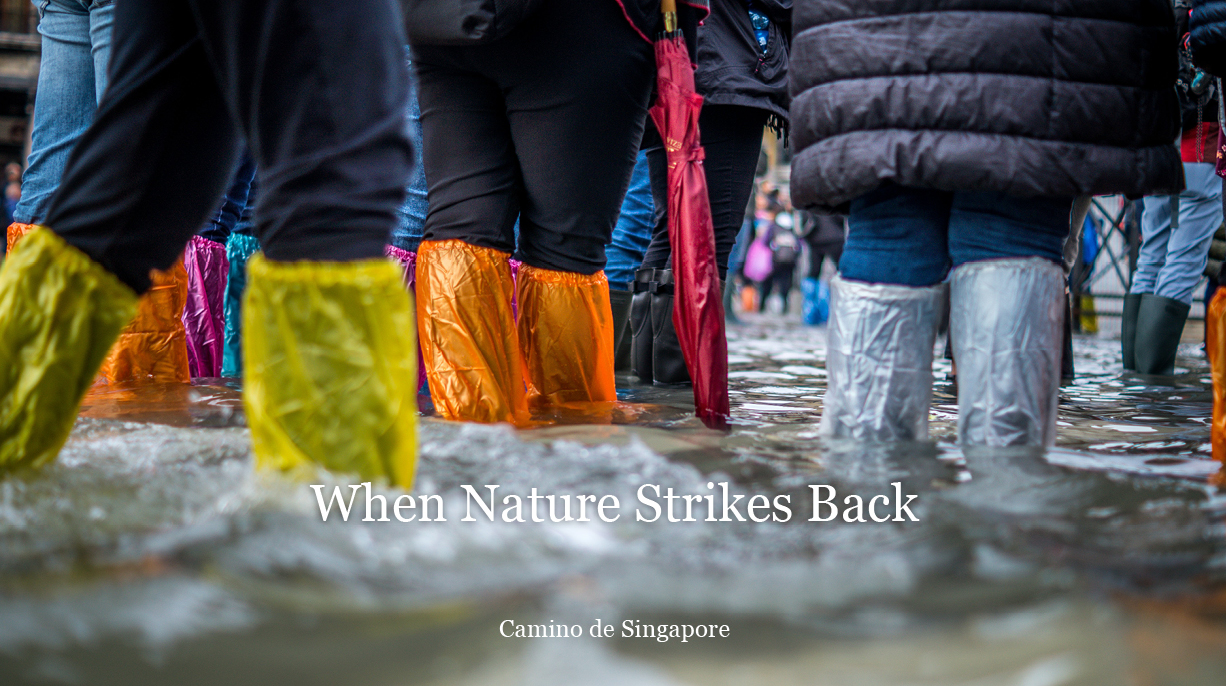No products in the cart.

Photo by https://unsplash.com/@jonfordphotos
When Pope Francis was travelling to the Philippines five years ago, a reporter asked during an in-flight press conference, whether climate changed is mostly caused by human activities. The Holy Father responded with a saying he heard from an old farmer, “God always forgives, we men and women sometimes forgive, but nature never forgives. If you abuse her, she gives it back to you.” 1
This response flashed through my mind when I read a recent commentary on flash floods in Singapore. The writers think it is unlikely that we will face the so-called “once-in-a-century” floods that are increasingly frequent and dangerous.
Yet, the reason why these floods are described that way is because they are unpredictable. Extreme weather events are often ‘extreme’ because they fall outside the range of expected weather patterns. I shudder to think if there is a “once-in-a-millennium” scenario.
Concerns around climate change is becoming increasingly urgent. Incrementally hotter climate is one. The other, more concerning, is the increasingly frequent extreme weather events that can have adverse impact on regions and nations. For example, Californians are facing increasing areas of forest fires from year to year, and the people living in the Pacific islands are seeing their lands shrink as sea levels rise.
This is just one of many reasons why we need to take climate change seriously. We should not sit back and do nothing, leaving it to the government or environmental groups to take care of it. Rather, we could look at ways to work together as a society, together with government bodies and scientists.
As Catholics, we have a moral obligation to do something effective about this climate crisis. The Church has reminded us to be responsible stewards of creation that God has gifted to us.
The COVID-19 pandemic has shown us that the poor and vulnerable are disproportionately affected by disasters. A central message of the gospel—to care for the poor and marginalised—also asks of us to look at how we can respond as a community for the most vulnerable. “So, faith by itself, if it has no works, is dead”. (James 2:17, NRSV)
Therefore, let’s learn more about what we can do. Let’s look with fresh eyes on how we can adapt our lifestyle to be effective stewards of God’s creation.
Let’s become part of the solution.
Related News
- Commentary: How prepared is Singapore for the next flash flood? (CNA, 17 Sep 2020)
- Global platform for exchange of ideas to be set up for shipping industry to reduce carbon footprint (ST, 17 Sep 2020)
- Firefighters make headway in California wine country, ‘gigafire’ reaches 404,000 hectares (ST, 6 Oct 2020)
- Fiji’s Bainimarama Makes Pacific Plea for Multilateralism (Diplomat, 6 Oct 2020)
Erwin Susanto is part of the Advocacy and Research team at Caritas Singapore. He enjoys boring his friends with his interest in Old Testament studies and finds it hard to resist commentating on all kinds of contemporary issues.
